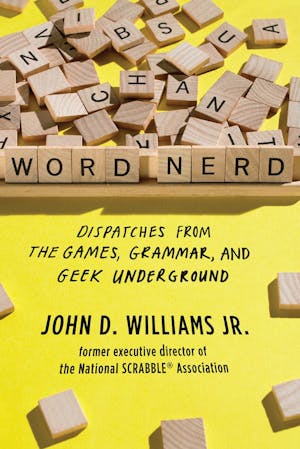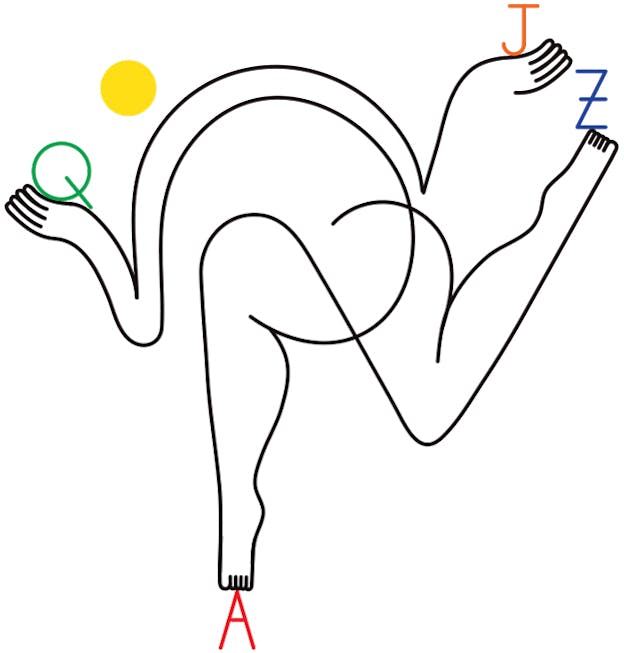In the early twenty-first century, you cannot be a person who loves words—a person who notices and lusts after them—without also finding words to hate. The last one that curled my lip was the made-for-talk-TV coinage “belfie,” a bastardization of selfie, modified to account for the featured part of the self (the butt, that would be). It wasn’t only the clunky attempt at stitching the words together that got me; it was that many of the belfies swirling around Instagram weren’t even selfies, in the sense that they were not pictures taken by the subject of the photo. Human bottoms, for all their visual appeal, are uniquely positioned to defy easy viewing by their owners. This, to my thinking, took the self out of the selfie. These were simply snaps of bums. You may have my momentary attention with such a stunt, madam, but you do not deserve the honor of claiming a permanent part of the language.

The Web will disagree with me here; a belfie is a thing, and it will not be lanced. But I feel confident dismissing it on the firmest grounds I know: While “selfie” is now a legal play in Scrabble, the official word list would still laugh “belfie” off the board. What constitutes a legal word is a central concern of John D. Williams Jr.’s new memoir, Word Nerd: Dispatches From the Games, Grammar, and Geek Underground. Williams spent 25 years as the head of the National Scrabble Association, serving as the main ambassador between the game’s U.S. manufacturer, Hasbro, and anyone who played or covered Scrabble. He writes as a marketer, an enthusiast, a purist inside a profit-driven company, and a breezy evangelist. The game’s curious cult-ubiquity connected him over the years with such Scrabble fiends as Jack Black, Jimmy Kimmel, and Martha Stewart, who hinted to him that she had time to sharpen her skills while incarcerated. The book celebrates the curious channels that words take to arrive in the game’s canon, a constant battle since any malapropism (thanks to Google) can be shown to have precedent. By the loosest of definitions, a word begins to gain word-ness as soon as it’s tweeted.
Of course, the official arbiters of the English language still stand firm. The Oxford English Dictionary and Merriam Webster still reign supreme. But to my mind, Scrabble offers a more practical policing function. There’s a penalty for misuse, if only in the game. While other forms of casual verbal interaction endlessly evolve to accommodate yesterday’s turn of phrase, the rules in Scrabble hold fast. Colloquialisms cannot fudge their way into tournament play. Punning is pointless. The hyphen, duct tape to so many insta-words, has no place here. Scrabble’s lexicon is a menu that forbids substitutions—and for most of the people in the world, playing on their phones, these rules are clear and instantly imposed. Gone are the days when you had to thumb through a dusty book; what’s in, what’s out is all right there, all the time, embedded in your app. In a lexical world where everything is fluid, there is distinct appeal in the closed, highly regulated universe of Scrabble.
That is not to say that Scrabble has a static relation to language. Additions this May to the latest edition of Collins Official Scrabble Words (the widely used international regulatory tome) brought out the usual bellyaching, because among the 6,500 new legal words were now ubiquitous neologisms such as “twerking,” “sexting,” and one that my Scrabble phone app rejected only weeks earlier, “emoji.” Updates are erratic, always debated, generally welcomed like smoke above the Vatican. A year ago, when the North American Scrabble Players Association revised their official tournament word list, they rolled out almost 9,000 new words that included four of the two-letter variety: “te,” “da,” “po,” and “gi.” The Associated Press asked a Canadian Scrabble champion his opinion and found him delighted with those tiny additions: “I call those the amino acids of Scrabble.” Comparing new words to the literal building blocks of life is hyperbolic only if you don’t play.
To read Williams is to be drawn into the linguistic promiscuity of Scrabble’s top players. Take “umiaq,” a sort of Arctic hide-canoe, as an example of a word Scrabble players hunger for far more than English speakers at large: “umiac,” “oomiac,” “oomiak,” and “oomiack” all are legal spellings in the game. Currencies are likewise great at bailing out hard-to-play letters: xu, zaire, yuan, rupee, zloty. The onomatopoeia are similarly freewheeling. “Examples include ‘mm,’ ‘hm,’ ‘hmm,’ ‘whoosh,’ ‘brr,’ ‘brrr,’ and the like,” Williams writes. “These drive people crazy, despite the fact that they tend to be extremely playable and valuable words. I guess there are fewer Ogden Nash fans out there than I’d anticipated.”

The impulse by top players to limit the universe of legal words is sympathetic: Having dedicated years to uploading perhaps 100,000 words into their cerebrums, they would prefer to keep the market cornered. Other factors, of course, bear on a player’s overall skill. She must have the vision to unscramble words from the lettered tiles and to stitch those onto the letters already played. She must steer the board of play, cutting off her opponent’s scoring chances, and forcing her opponent into setting up her own next turn. In the end, as occasional Scrabble journalist Stefan Fatsis has written, Scrabble can resemble the boardsmanship of such ancient grid-based games as go and chess. Yet the paramount conjoined skills of the game is knowing and being able to spell many, many words. In North America, players can play more than 187,000 legal words. Internationally, the tournament list swells past a quarter-million. Most native English speakers’ active vocabularies aren’t even one-tenth as large.
Words spill into the language from every direction. The question of when, exactly, they move from being words of foreign origin or American slang to plain ol’ English is a matter for Scrabble to determine. And the gates to this garden swing at curious intervals. From Japanese, Scrabble has welcomed “manga,” “hibachi,” “kamikaze,” “kaizen.” From Russian: “taiga,” “soyuz,” “ukase,” “zek.” Spanish: “bodega,” “chorizo,” “gordita,” “amigo.” Korean: “soju,” “hangul.” But no “panko,” “balaclava,” “tomatillo,” or “bibimbap,” yet. From American slang, “chillax,” “yo,” and “coz” have all made the cut in recent years, Williams writes, as well as plenty of product names that, by filling a niche in the language, have slid into lowercase use: “benadryl,” “teflon,” “vaseline,” “dumpster,” “kleenex.” Only in the realm of epithets has Scrabble drawn down significantly. My favorite line in Williams’s memoir, fitting its often understated tone: “The word ‘motherfucker’ was discussed”; ultimately, it remains even more unplayable than it is unprintable.
If you play a lot of Scrabble, as I do with strangers and friends via my smartphone, reaching into my pocket like a pack-a-day smoker, then to play a great word—a killer word, a game-tilting whodathunkit word, a quantifiable bon mot—brings a waft of neurochemical bliss every time. Play this game enough, you start to see words not as units of language, per se, but as discrete ways to organize letters, molecules that structure otherwise unruly atoms, with a collocating power akin to poker hands. The joy of finding a sublime word in the alphabet soup—or, even better, cultivating your rack of letters and jockeying the board to set you up for that moment—is palpable, almost audible. In a game against Guest4341, I dropped the word “ibex” on a triple word score, against an existing word, with a letter multiplier under the X. It scored 82 points with just those four letters lain. Hand to God, my lower back tingled.
In Scrabble, words are, in a literal sense, spells. They’re powerful, and for as cheap as they are in the Internet age, still quite precious. The top-level tournament players Williams encounters tend toward the eccentric, even the monkish: people who fall into the swirling chaos that is modern English and try to protect it by knowing its every edge and cranny. I’m only a casual player, if a persistent one, and even I feel this impulse; when I saw the word “facetime” on the most recent update of the international dictionary, I felt like telling it to get off my lawn. Such protests remind me of the rationale for banning newfangled weaponry: “Cervantes has Don Quixote condemn ‘an invention which allows a base and cowardly hand to take the life of a brave knight,’” John Keegan writes in A History of Warfare. As coincidence has it: Cervantes himself gave name to the highest-scoring turn in officially sanctioned Scrabble play in North America: “quixotry,” worth a boggling 365 points, in a Massachusetts church basement in 2006. A carpenter played it against a dude who worked at a deli counter. A word of that illustriousness, multiplied nine times and worth a total of many decent entire games, goes off like cannon fire. With a play like that, laying such a mighty word, a commoner achieves status as nobility.
